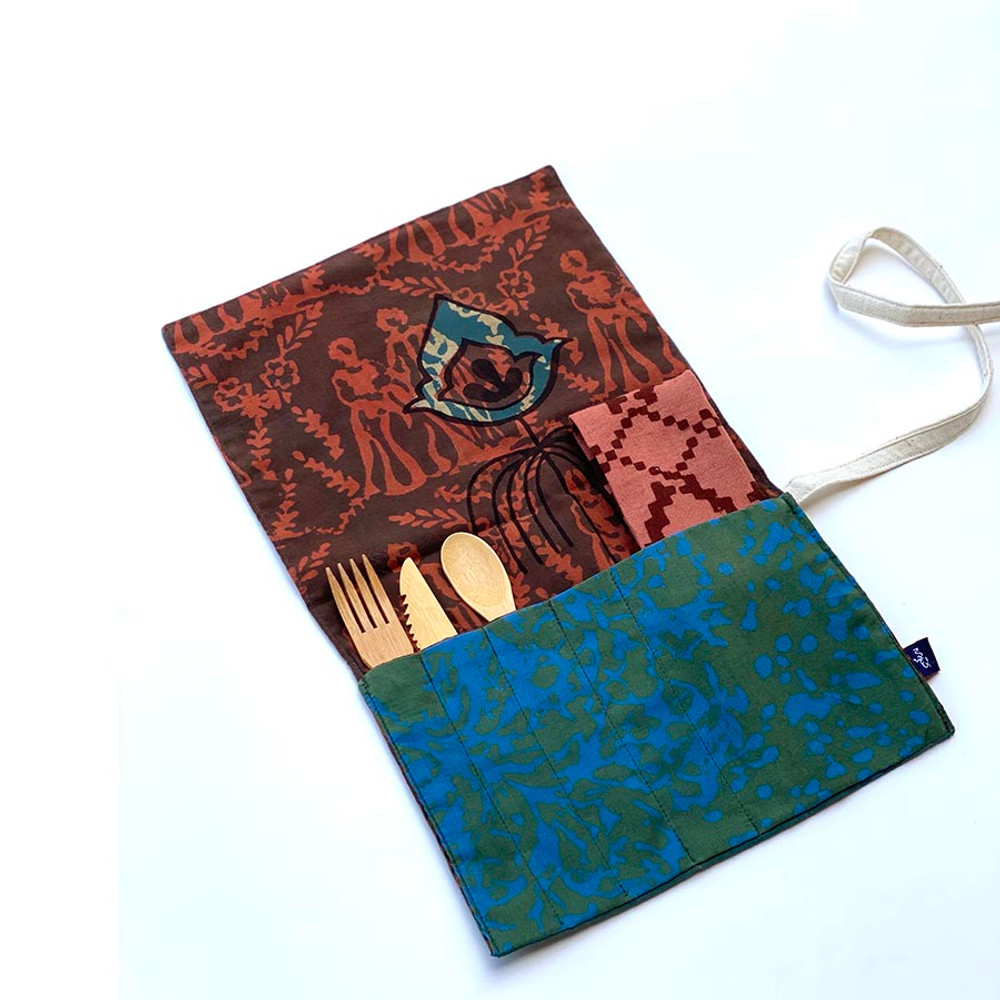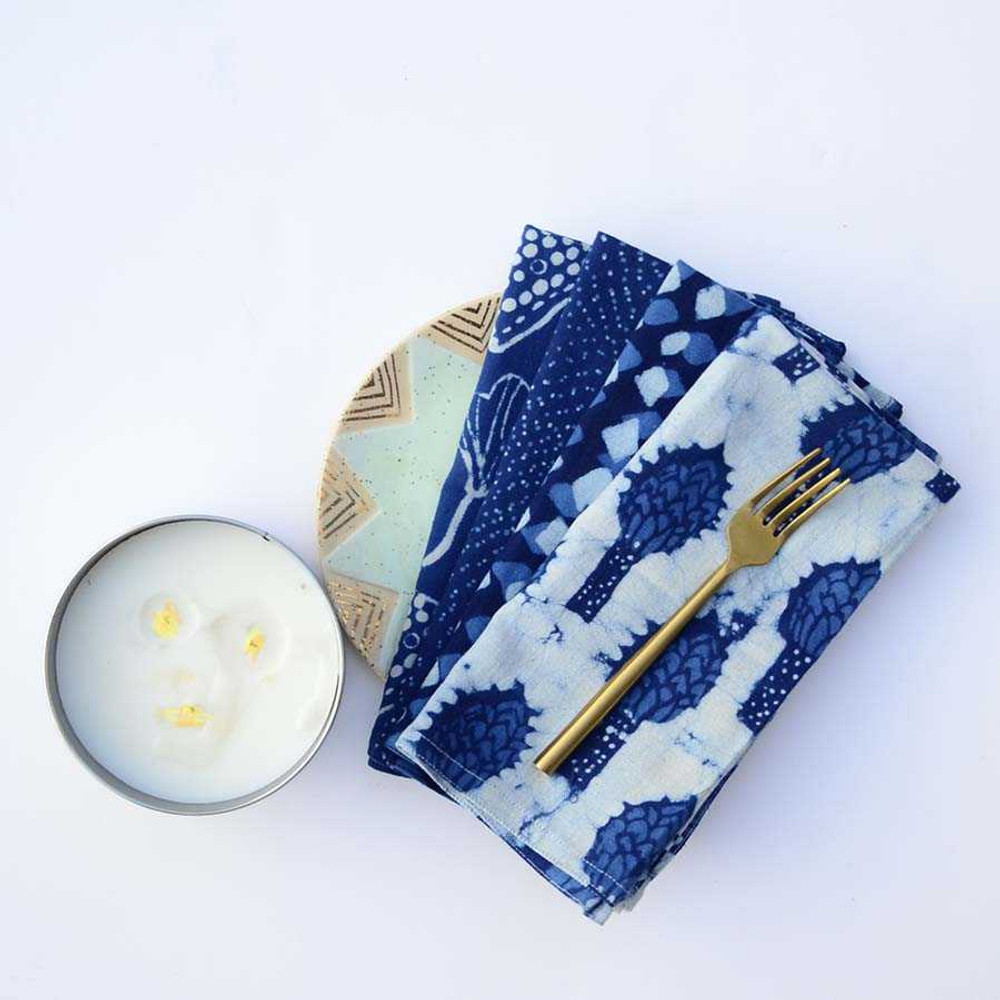How to Transform Your Kitchen into a Zero-Waste Space
Posted by The Ichcha Team on 10th Sep 2024
Creating a zero-waste kitchen is a giant step towards reducing your carbon footprint and saving the planet. But did you know that it benefits you financially? Swapping your paper towels for reusable napkins can save you money in the long run. Plus, you’ll be ensuring you spend only on food products you can consume, thereby reducing your waste and the environmental impact of the food industry. A sustainable kitchen is a win-win for everyone.
Now, look around your kitchen. There are so many items you can swap out for more sustainable alternatives. Don’t worry, we’ll show you where to start.
Here are ways to transform your kitchen into a zero-waste haven.
1.Swap Paper Towels for Reusable Ones
How often do you reach for a Bounty paper towel to clean your countertop only to trash it right after? Your trashcan is probably filled with heaps of paper. Although they're compostable, producing a single ton of paper napkins requires 17 trees and 24.5 gallons of water, and releases up to 7.5 pounds of greenhouse gases—all to keep your kitchen from running out of towels.
The first step in creating a more sustainable kitchen is to switch from paper towels to reusable towels or tea towels. The ones we use are made from organic cotton and are just as effective at cleaning up spills, wiping down surfaces, and drying your hands. Plus, they’re reusable! When you consider how much you spend monthly on single-use paper towels, reusable ones that can serve you for years just make more sense.
By switching to reusable towels, you reduce the amount of paper waste your kitchen generates.
2.Replace Plastic Grocery Bags with Reusable Ones
Plastic is a major contributor to greenhouse gas emissions. Plastics end up in landfills where they're burned, which accounts for over 15% of global methane emissions. Those not burned may end up in water, choking marine life. It’s that dangerous.
But we get it. It's almost impossible for your home to be completely devoid of plastic items. But you can make a big difference by reducing how many plastic bags you take home after grocery shopping. These materials end up as kitchen waste. To create a zero-waste kitchen, avoid single-use plastic bags and switch to reusable produce bags made from organic cotton or mesh.

3.Switch to Reusable, Washer/Dryer Safe Napkins
Do you use paper napkins to serve meals? For a zero-waste kitchen, ditch those paper napkins for cloth napkins, preferably those made from organic cotton. Our cotton cloth napkins are super absorbent, eco-friendly, and washer/dryer safe. Just toss them in the wash, and they’re ready to go again. Plus, cloth napkins are more elegant than paper.
Whether it's a casual dinner at home or a special gathering, cloth dinner napkins are sure to add a touch of elegance to your table setting.
4.Ditch Plastic Bottles for Glass Jars
Every kitchen needs reusable containers. A simple yet impactful way to make your kitchen more sustainable is to start using reusable glass containers instead of plastic ones. Glass is a sustainable alternative because it’s recyclable, non-toxic, and doesn’t leach chemicals into your beverages or food.
Hence, glass is better than plastic for storing fresh produce. And let’s be honest, they look so much prettier sitting on your countertop or in your fridge!
5.Replace Plastic Spoons with Bamboo Sets

An easy way to create an eco-conscious kitchen is by replacing plastic spoons with bamboo ones. In fact, there’s a global mission of replacing plastic with bamboo, seeing its many advantages. Bamboo cooking utensils are lightweight, sturdy, durable, and won’t leach synthetic chemicals like plastic does. Plus, they’re so easy to clean—just wash them with warm, soapy water, and they’re good as new.
Although bamboo products are not so common in most stores yet, you can find some bamboo utensil sets here. From bamboo spoons to spatulas and more.
6.Ditch Pre-Packaged Food for Fresh Produce
If possible, buying fresh produce is a fantastic strategy for achieving a zero-waste kitchen. Reason is that fresh produce does not require packaging, which is chiefly made from non-sustainable materials like plastic. By so doing, you reduce the amount of plastic waste that ends up in your kitchen.
If you purchase fresh produce in bulk, ensure they're properly stored to avoid waste. Aside from the initial cost, running a zero-waste kitchen by buying in bulk can be more cost-effective than buying pre-packaged foods in bits. Prep your meals and freeze them for future consumption.
7.Swap Plastic Tupperware for Pyrex Glass
We all have that cupboard full of mismatched plastic Tupperware, but it’s time to make a change. Pyrex glass with bamboo lids is a more eco-friendly alternative to plastic containers. Pyrex glass is chemical and heat-resistant, making it safe to use in the microwave, oven, and freezer. Also, it doesn’t chemically interact with your food, unlike plastic.
Plus, glass containers are incredibly durable and recyclable, making them a smart investment for a zero-waste lifestyle. The bamboo lids add a touch of natural beauty to your kitchen and fit snugly to keep your food fresh.
8.Shop Mindfully
A vital part of a zero-waste kitchen is reducing food waste. It’s easy to overshop for groceries, grabbing everything you can lay your hands on hoping you’d feel like eating them someday. But a sizable chunk ends up in the trash, doesn’t it?
Although food is compostable, wasting food is never cool. Food production accounts for over a quarter (26%) of global greenhouse gas emissions. You don’t want all of that to be in vain. So, ensure you buy only what you need.
Note: Buying what you need in bulk is different from buying a little of everything.
9.Invest in a Compost Bin
Instead of throwing food scraps in the trash, invest in a small compost bin for your kitchen. You can compost things like fruit and vegetable scraps, coffee grounds, and other organic waste. Aside from reducing the amount of food waste you generate, composting also creates nutrient-rich soil that you can use in your garden or donate to a local community garden.
The Bottom Line
Every small change adds up, and before you know it, you’ll have transformed your kitchen into an eco-friendly haven that you can feel good about. It all starts with these little steps.
Together, we can build a healthier planet that is safe not just for you and I but our future generations yet unborn.
Frequently Asked Questions (FAQs)
What is the Best Way to Minimize Kitchen Waste?
To minimize kitchen waste, only purchase foodstuff you’re sure to consume, whether now or later. If you buy in bulk, prep the meals, refrigerate the excess, and compost the scraps. Use a reusable shopping bag to avoid bringing home several plastic bags every time you shop.
How to Make Your Home Zero-Waste?
Making your home zero-waste involves gradually replacing disposable items with reusable alternatives, reducing consumption, and shopping mindfully. Compost organic waste and recycle diligently.
How Do You Decompose Kitchen Waste Quickly?
To decompose kitchen waste quickly, it's best to put the nitrogen-rich waste at the bottom of the compost pit before the carbon-rich ones. To expedite the process further, add earthworms to the compost. You may use a compost bin or dig a hole 2-3 feet deep.
How Can I Make My Kitchen Zero Waste?
You can make your kitchen zero-waste by swapping plastic containers for glass jars, replacing paper towels with cloth napkins, and minimizing food waste through mindful shopping. Use a reusable grocery bag rather than single-use plastic ones. Shop Ichcha now to find sustainable kitchen items like reusable cloth napkins, bamboo utensils, and more.




